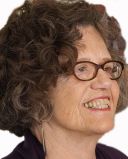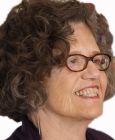Loneliness
Mother's Day Blues: Adoptive and Birth Mothers
Adult adoptees often have two mothers. What conflicts arise on Mother's Day?
Posted May 8, 2015 Reviewed by Devon Frye
Most of us have only one mother, but adult adoptees often have two. When adoptions are open, or after a reunion, either the adoptive or the birth mother may feel excluded on Mother’s Day.
I remember Mother’s Day in 2007. For the first time in twenty-six-years, my adopted son, Jamal, wasn’t spending the day with me, but with his birth mother two thousand miles away. Even though I had helped him find his birth parents and helped him return for a longer stay, I knew that I might feel lonely. I planned a busy day starting with brunch with my surrogate daughter Julie, who is ten years older than Jamal, and whom I’d known since she was seven. She’d lived with me for several years after Jamal moved out. After eating, we walked in the botanical garden, overflowing with the spring blooms I love, but I was overcome with sadness.
All I could think about were the Mother’s Days I’d spent with Jamal. He rarely had money to buy me a present or take me out, so his gift was to spend the day with me, doing what I wanted. Yet, I enjoyed myself only when he was engaged too. We both got pleasure from good food, but restaurants were crowded on Mother’s Day, and as he advanced into his twenties, I resented having to pay. Sometimes he cooked breakfast for me or barbequed for dinner, but I’d have to stock the ingredients. We both liked to hike or take the dog to the beach, but since he had lost his license, I’d have to drive. I couldn’t accept that he wasn’t turning into the responsible adult I had expected he would become.
Then, one year I had hit on the perfect activity—going by public transportation to visit a San Francisco art museum. He liked going to museums with me and I could enjoy being with Jamal without having to drive or to pay, as I was a museum member. But last year he had slouched behind me as we entered the San Francisco Museum of Modern Art. I was an older white woman dressed conservatively accompanied by a young black man with long deadlocks in baggy jeans and a white tee. Did he hesitate because he felt as conspicuous as I did?
I had started taking Jamal to view black artists when he was eight or nine. Although I came to love some of these artists whom I had known little about, especially Jacob Lawrence, Romare Bearden, and Aaron Douglas, Jamal often preferred other artists in the museum. On that Mother’s Day, I wanted to see an exhibit by Robert Bechtle, the Bay Area realist painter. Despite the emphasis on cars, which didn’t interest me, I warmed to Bechtle’s paintings because they often featured familiar locales and evoked the starkness and isolation of American life in a more subtle manner than did Edward Hopper’s work. As I began to appreciate Bechtle, Jamal became enthralled. He peered closely at the paintings.
Look at the subtle shading on the houses and autos,” he pointed out. “These paintings make me remember my own feelings, happy and sad, about such cars and those neighborhoods, something I would never get from a photograph."
He was so intrigued that he forgot his unease. For a few hours, our interests and worlds merged with each other and we both had a good time. This was the son I had so enjoyed when he was a child, the son I longed to have as an adult.
But on Mother’s Day in 2007, he never even called. The Monday after, I called his birth mother at work. Before I could say anything, she said: “Jamal didn’t call you yesterday because I no longer have long-distance service for outgoing calls; please call him; he feels bad.” I called and he answered “Happy Mother’s Day.”
Jamal, like most adoptees, soon returned to his adoptive home. While he still has contact with both his extended birth families, he has not returned there for the past four years. This Mother’s Day before we go for our hike, I’ll remind him to call his birth mother. Although she has other adult children nearby, I’m sure she will feel sad if she doesn’t hear from her oldest child, the one she lost to adoption.


